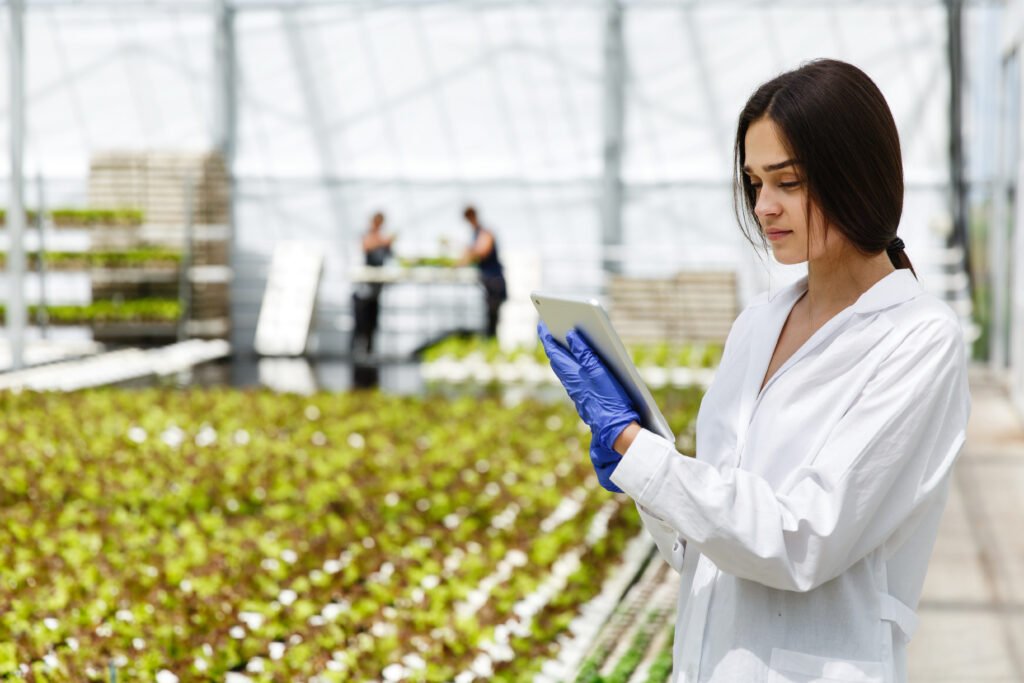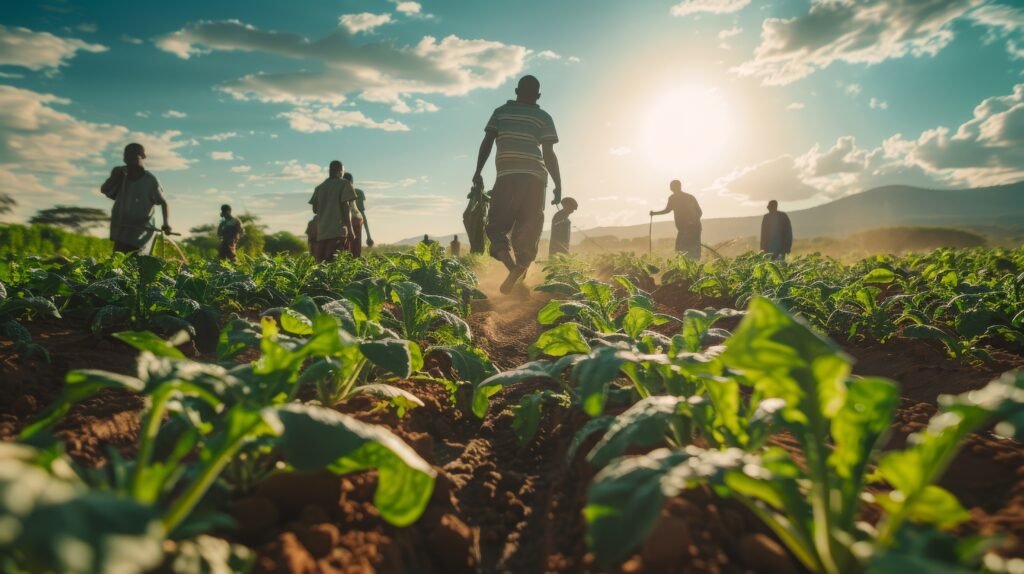Latest News
Biologicals for a Greener Future | Inside Syngenta India’s Vision for Sustainable Agriculture

Syngenta India, a worldwide agricultural innovator that supports biological solutions aimed at regenerating the country’s soils, preserving biodiversity, and empowering farmers, is at the forefront of this change. India’s agricultural future depends on a significant shift that strikes a balance between sustainability and production in the face of escalating environmental concerns, soil degradation, and climatic instability.
By incorporating biologicals into the core of its sustainable agricultural strategy, Syngenta India is leading the global movement towards climate-smart agriculture.

Why Are Biologicals Important and What Are They?
Biopesticides, biostimulants, and biofertilizers are examples of naturally occurring agricultural inputs known as biologicals. They improve soil vitality, increase crop resilience, and support plant health without having the negative environmental consequences of manufactured chemicals. These treatments cooperate with nature by using plant extracts, fermentation byproducts, and helpful microbes.
Biologicals are an essential part of regenerative farming systems since, in contrast to conventional agrochemicals, they improve soil biodiversity, decrease food residue, and reduce carbon footprints.
According to Susheel Kumar, Managing Director of Syngenta India, “biologicals are the future of sustainable agriculture in India.” “They offer practical solutions to farmers seeking environmental stewardship and yield security.”

Female researcher reads information from a tablet standing in the greenhouse
A Vision Based on Sustainability and Science
A key component of Syngenta India’s product pipeline will include biologicals. By means of significant R&D expenditures, collaborations with biotech companies, and farmer-focused initiatives, the business is establishing itself as a force for change in sustainable agriculture as well as a market leader.
Researchers at Syngenta are creating botanical and microbiological solutions specifically tailored to India’s varied agroclimatic conditions at its Biological Innovation Center in Goa. The sustainability, safety, and effectiveness of these biologicals are thoroughly examined.
According to Dr. Meena Iyer, Head of Sustainable Solutions, “We are not merely introducing global technologies—we are customizing biologicals to suit Indian crops, Indian soils, and Indian farmers.”
Verified Effect on the Field
Farms all around the nation are already being transformed by Syngenta India’s biological products. Farmers are enjoying higher yields, lower input costs, and healthier soils thanks to biostimulants that improve nutrient absorption in rice paddies and biopesticides that naturally repel pests in cotton and vegetables.
Syngenta’s Crop+ Bioboost reduced the usage of chemical pesticides by 40% while increasing chilli yields by 22%, according to recent field tests conducted in Andhra Pradesh. Long-term crop vigor and improved soil texture were also noted by farmers.
A forward-thinking Telangana farmer named Sitaram Naik claims that “my land feels alive again with biologicals.” “I’m using fewer chemicals and my crops are healthier.”
Access and Education at the Center
Syngenta India has implemented training programs under its Grow More initiative, providing over 250,000 farmers with practical information regarding biological applications, organic practices, and integrated pest management (IPM), acknowledging that awareness is the first step towards acceptance.
To guarantee that even smallholder farmers in isolated locations have access to bio-based substitutes, the firm also works with Krishi Vigyan Kendras (KVKs), non-governmental organizations, and rural agri-preneurs.
“Biologicals cannot just be a high-end option. For all Indian farmers, they must be accessible, inexpensive, and scalable, Kumar stresses.
Assisting India with its Sustainability Objectives
The biological vision of Syngenta is in perfect harmony with national goals like:
- Promoting Alternative Nutrients for Agriculture Management, or PM-PRANAM
- Natural farming on a zero budget (ZBNF)
- Mission of Soil Health
- NMSA, or the National Mission for Sustainable Agriculture
Syngenta’s biologicals immediately enhance food safety, water conservation, and carbon sequestration—all of which are vital levers for long-term food security and climate resilience—by decreasing reliance on synthetic chemicals and increasing soil organic matter.
Towards the Future: A Regenerative One
As Syngenta India expands its biological products, it sees a day when technology and biology will work together to produce really regenerative farms via precision application systems, microbe-plant interaction research, and soil sensors driven by artificial intelligence.
The following is part of the company’s 2030 roadmap:
- Using biologicals to reach two million farmers
- Increasing India’s capacity for bio R&D and production
- Including digital tools for monitoring and biological suggestions
- Collaborating with public and commercial entities to establish a national biological environment
“Growing more with less and growing responsibly is our simple mission,” Iyer adds. “We’re not only farming for today when we use biologicals. We are cultivating for the future.
FAQs, or frequently asked questions
1. In agriculture, what are biologicals?
Natural goods made from living things, such as microorganisms, plant extracts, or fermentation byproducts, are known as biologicals. They improve soil health, protect crops, and promote plant development without endangering the environment.
2. What distinguishes Syngenta India’s biological products from conventional chemical ones?
With little ecological effect, Syngenta’s biologicals provide natural crop protection and improvement. They leave no toxic residues, are safe for pollinators and the soil, and lessen the need for artificial pesticides.
3. Are biologicals appropriate for all Indian climates and crop types?
Indeed. For a range of Indian crops, such as rice, cotton, wheat, vegetables, and fruits, as well as for various agroclimatic zones, from drylands to coastal areas, Syngenta India is creating biologicals.
4. Are biologicals affordable for small and marginal farmers?
Of course. Through collaborations, subsidies, and packaged solutions with advisory assistance, Syngenta is dedicated to lowering the cost and increasing the accessibility of biologicals, particularly for smallholder farmers.
5. What information is available to farmers on the use of biologicals?
For real-time advice on product use and best practices, farmers may interact with Syngenta’s mobile app and rural advisers, take part in the company’s Grow More campaign, or visit local field demos.
Conclusion
Biologicals are the future, not merely a substitute, as India moves toward a more climate-resilient and sustainable agricultural system. Syngenta India is a major force behind this change because of its dedication to sustainability, research, and smallholder development.
Syngenta is assisting farmers in growing more responsibly, restoring soil health, and guaranteeing long-term food and environmental security by incorporating biologicals into conventional farming. Syngenta has a clear vision for Indian agriculture, driven by the finest of science and nature, from lab to land: a more regenerative, healthier, and greener future.






















